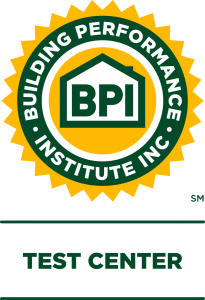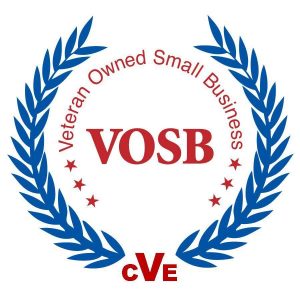No products in the cart.
TREC Contractor Training Grant Supports Energy Efficiency Workforce
With the passage of the Inflation Reduction Act in 2022, the U.S. Department of Energy will soon deliver $9 billion in federal funding to states for residential energy efficiency and appliance upgrades. Home energy efficiency measures offer numerous benefits, including lower utility bills, improved indoor air quality, and better temperature regulation, leading to enhanced health and quality of life for residents. Additionally, these measures help reduce greenhouse gas emissions and create a demand for skilled labor, resulting in stable, good-paying jobs in a rapidly expanding industry. Today we’re going to talk about the Contractor Training Grants, also known as the Training for Residential Energy Contractors (TREC) program. TREC will prepare industry contractors for the anticipated surge in demand for energy efficiency upgrades.
DOE Home Energy Efficiency Contractor Training Grants Overview
The U.S. Department of Energy’s $9 billion Home Energy Rebate Program, funded by the Inflation Reduction Act, is already creating unprecedented demand for skilled contractors and other workers across the country who are involved in the installation of energy efficiency and electrification measures. To achieve the goals of the program, the energy efficiency workforce will need to grow significantly – which in turn requires massive investments in training and education.
Fortunately, $150M will soon be available to states between Fiscal Years 2023-2027 to invest in training for residential energy contractors through the Inflation Reduction Act. Known as the State-Based Home Energy Efficiency Contractor Training Grants (or Contractor Training Grants), states may use these funds to create new and/or supplement existing workforce development programs to:
- reduce the cost of training contractor employees;
- provide testing and certification of contractors trained and educated under a State program;
- partner with nonprofit organizations to develop contractor training for residential energy contractors in their state.
State Energy Offices are the “prime recipient,” or designated state agency responsible for overseeing the distribution of funds within their states.
While the implementation of Contractor Training Grants funding will look different for every state given their varying needs and allocation amounts, states will likely use the funding for on-the-job training, online outside certification courses and testing, in-person outside certification courses and testing, or a combination of several of these approaches.
Also, a portion of Contractor Training Program funds will be reserved for states to conduct program evaluations – including assessing progress against goals, participant feedback, program impacts, and recommended improvements.
Timeline & Process for Distributing Contractor Training Program Funds
In July 2023, DOE opened up applications for states to apply for Contractor Training Program funding and provided additional details on their required application documentation. In addition to the $150,000,000 that will be divided among states through a formula in two separate installments, an additional $40,000,000 in Contractor Training Program funds will be available for states to apply for through a competitive process. As of July 2023, DOE has not yet announced the details of this competitive process.
DOE’s guidance also lists eligible professions – including plumbers, HVAC contractors, electricians, and home performance contractors – as suitable targets for training.
State energy office applications for formula funding are due by September 30, 2023. As part of their applications, they are required to include a comprehensive Community Benefit Plan, outlining how their program will benefit local communities and labor, support workforce development, promote diversity, and advance environmental justice. States will also be required to develop Workforce Development Plans that outline the need for skilled workers, which training programs already exist in their states, and their outreach and engagement plans for new and incumbent contractors.
DOE has also encouraged states to create a Workforce Advisory Group comprising at least one-third of their target audience – including contractors and their employers. This advisory group will guide program design and implementation and actively contribute to programmatic changes to ensure their programs are successful. Contractors will play a crucial role in shaping the future of energy efficiency training by actively participating in these advisory groups.
How Everblue Can Help Meet the Demand for Skilled Contractors

Everblue stands ready to work with state energy offices and non-profits to help structure and implement the Contractor Training Program and Home Energy Rebates. Contractors who perform home energy efficiency and electrification upgrades as part of these programs will need to be familiar with Building Performance Institute (BPI) standards and procedures. Everblue has been a BPI Test Center for over 10 years and offers comprehensive BPI certification courses to help home energy professionals learn all the building science principles they need to succeed in their role and to get BPI certified.
When funding through the American Recovery and Reinvestment Act (ARRA) became available between 2009-2011, Everblue worked directly with community colleges, utilities, and unions to help train their students and employees to be building science professionals. In fact, during the ARRA funding period, we hosted multiple in-person contractor training events simultaneously at our weatherization training center locations nationwide.
Everblue also sets itself apart by having a robust learning management system with the capacity to accommodate thousands of online learners at the same time. In addition to the online course offerings, Everblue also has in-person options and allows people the flexibility to learn through whichever format – online, in-person, or hybrid – best suits their needs.
A Long History of Working with the Public Sector
Everblue is currently partnered with over 10 state government agencies to deliver online training and testing. In fact, we are already listed as a vendor in many state databases and even have security clearances. Through these partnerships, Everblue has gained a deep understanding of how government processes and procedures work and has built long-lasting relationships with the public sector along the way, making it one of our core competencies.

As a Veteran Owned Small Business (VOSB) with over 25 years of experience working in the public sector, we’re prepared to help deliver these once-in-a-lifetime benefits for households through the U.S. by preparing current and future contractors for the next steps in their energy efficiency career.
Next Steps
Take your career to the next level and get started today by checking out Everblue’s course offerings! We anticipate the BPI Building Analyst Training to be the most relevant and impact certification pertaining to the Inflation Reduction Act and the Contractor Training Program.
